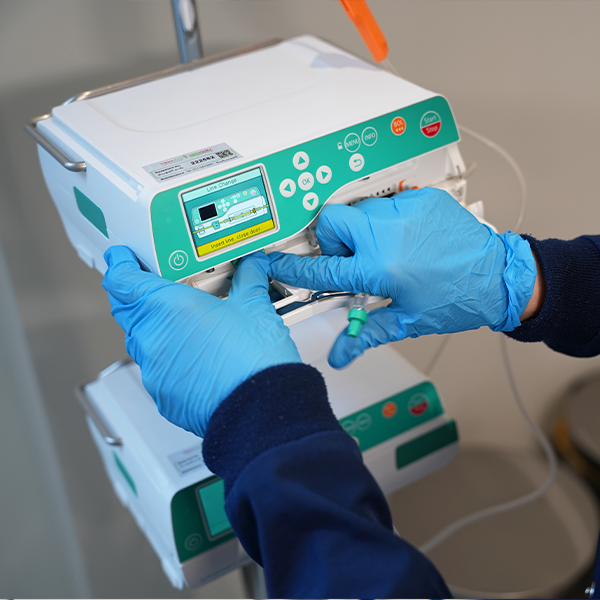Understanding Biologics in Modern Healthcare
Biologics are a class of advanced medicines derived from living cells. Unlike traditional chemical drugs, biologics are designed to target very specific parts of the immune system or disease process. This precision allows for more effective treatment with fewer side-effects in many cases.
How Biologics Differ from Traditional Medicines
Traditional medicines are typically created through chemical synthesis and often have a broad impact on the body. Biologics, by contrast, are large, complex molecules — such as antibodies, enzymes, or proteins — that work by blocking or modifying specific pathways.
Key differences include:
- Targeted action: Biologics focus on specific immune responses or disease processes.
- Complex structure: Made from living cells, they are more sophisticated than standard drugs.
- Mode of delivery: Many biologics are administered through IV infusion therapy or injections rather than taken orally.


The Role of IV Infusion Therapy in Biologic Treatment
Because biologics are proteins that would break down in the digestive system, they must be delivered directly into the body. IV infusion therapy ensures these medicines reach the bloodstream effectively, maintaining their potency and providing consistent therapeutic results.
Patients receiving biologic infusions benefit from:
- Controlled and precise dosing
- Higher bioavailability compared with oral medicines
- Professional monitoring during treatment sessions
Conditions Commonly Treated with Biologics
Biologics have transformed the outlook for patients with a wide range of chronic and autoimmune diseases, including:
- Rheumatoid arthritis – Biologics reduce inflammation and protect joints.
- Lupus – Targeted therapies help control flare-ups and organ involvement.
- Crohn’s disease and ulcerative colitis – Infusions reduce gut inflammation and improve remission rates.
- Psoriasis – Biologics interrupt immune triggers behind skin flare-ups.
- Multiple sclerosis (MS) – Certain biologics help slow disease progression.
- Cancer – Immunotherapy biologics boost the body’s ability to fight tumours.
Benefits of Biologics for Patients
For many patients, biologics represent a turning point in their treatment journey. Reported benefits include:
- Reduced inflammation and pain
- Improved mobility and daily functioning
- Fewer relapses or flare-ups
- Slower disease progression
- Better long-term outcome
- Improve quality of life
Challenges and Considerations in Biologic Therapy
Although biologics offer groundbreaking results, they do come with considerations:
- Cost – Biologics are often more expensive than traditional medicines.
- Access – IV medications requires specialised centres for infusion therapy.
- Immune effects – Because they influence immune function, biologics can increase susceptibility to infections.
- Monitoring – Patients need regular follow-ups to assess effectiveness and safety.
The Future of Biologics in Modern Medicine
Research into biologics is advancing rapidly, with new therapies being developed for autoimmune diseases, cancers, and even neurological conditions. Innovations such as biosimilars (highly similar alternatives to existing biologics) are making these treatments more accessible.
With precision medicine on the rise, biologics will continue to shape the future of healthcare — offering targeted, personalised treatment options that improve outcomes for patients worldwide.
Biologics and IV Infusion Therapy: A Powerful Partnership
Biologics are changing the way of modern medicine that treats chronic illness, and IV infusion therapy is central to their success. Together, they offer patients a pathway towards long-term disease control, reduced symptoms, and improved wellbeing.Frequently Asked Questions
Q: What exactly are biologics?
A: Biologics are advanced medicines derived from living cells that target specific parts of the immune system or disease process.
Q: How are biologics different from standard medicines?
A: Unlike traditional chemical drugs, biologics are complex molecules designed for precise action, often administered via IV infusion therapy or injection.
Q: What conditions are treated with biologics?
A: Biologics are used for autoimmune diseases like rheumatoid arthritis, lupus, Crohn’s disease, psoriasis, multiple sclerosis, and certain cancers.
Q: Are biologics safe for long-term use?
A: Yes, biologic infusions are considered safe medications when administered by healthcare professionals. They offer powerful, long-term relief for many chronic conditions, with infection risk being an expected and manageable part of immune system modulation. For most patients, the benefits far outweigh the side effects, making biologics a trusted and effective treatment option.
Q: Why are biologics usually given by infusion or injection?
Because biologics are proteins, they would break down in the digestive system if taken orally. Infusion or injection ensures they reach the bloodstream effectively.


